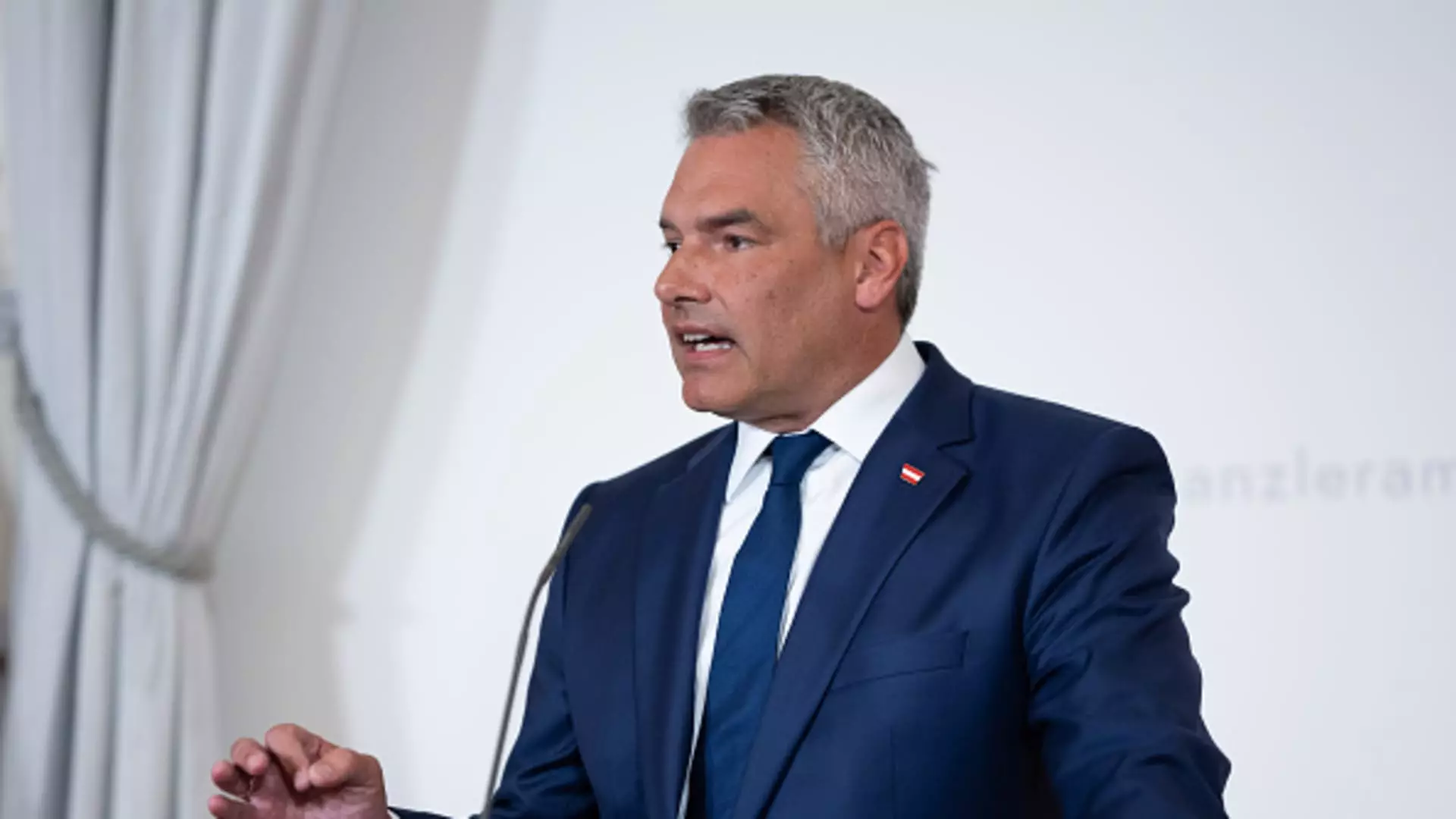The political landscape in Austria is currently undergoing a significant upheaval, following the collapse of coalition talks between the two primary centrist parties. This development comes in the wake of an election that was already anticipated to challenge traditional alliances and highlight the rising influence of the far-right Freedom Party (FPO). As conservative Chancellor Karl Nehammer prepares to step down, the ramifications of this political turmoil are being felt across the nation and could have wider implications for Europe as a whole.
Negotiations aimed at forging a coalition government between the People’s Party (OVP), led by Nehammer, and the Social Democrats (SPO) have crumbled, marking a critical point in Austria’s governing dynamics. This failure became apparent when the liberal Neos party withdrew from the discussions, citing a lack of decisive action from both centrist parties. Nehammer’s public announcement of his resignation signals not only a personal shift in leadership but also illustrates the broader instability present in the Austrian Parliament.
The dissolution of such negotiations underscores an increasingly complex political interplay wherein traditional centrist parties struggle to maintain unity amidst rising populist sentiments. Nehammer’s move to resign is not simply a reflection of the negotiation’s failure, but a wider indication of the challenges facing established parties as they navigate a path forward in an electoral landscape dominated by right-wing rhetoric and policies.
One of the most pivotal factors in this political crisis is the resurgence of the Freedom Party, which capitalized on a disaffected electorate during the September parliamentary elections. With approximately 29% of the vote, the FPO has positioned itself as a formidable player in Austrian politics, wielding significant influence that could potentially alter governance structures. However, Nehammer’s outright rejection of the FPO as a governing partner complicates the political landscape, leaving the country in a precarious position regarding possible future coalitions.
Interestingly, while Nehammer has expressed trust in some members of the FPO, notably, he has singled out party leader Herbert Kickl as too extreme for leadership—a contradiction that highlights the sociopolitical tensions within Austrian society. As the FPO garners increasing support, moving into a position where it could either lead a government or conditionally partner with other parties, the implications of this power shift excite both trepidation and opportunistic strategy amongst the traditional parties.
The resignation of Chancellor Nehammer opens two potential futures: either Kickl is tasked with forming a new government or Austria faces a snap election. This political fork in the road reflects deeper questions about governance in a fragmented party system where extremity is becoming normalized.
A change in leadership for the OVP could pave the way for a reexamination of coalition possibilities, including a reconciliation with the Freedom Party. Given the historical context of OVP and FPO cooperation from 2017 to 2019, the electorate may soon witness a recalibration of political alignments that previously seemed untenable.
Conversely, the call for an early election might serve as a litmus test for public sentiment toward the rising influence of the FPO. Such a landscape invites speculation about voter preferences amidst current socio-economic dilemmas amplified by parties like the SPO, which positions itself against the FPO’s ascent while emphasizing reforms in areas such as wealth distribution and labor rights.
The challenges faced by Austria’s political parties are not unique but resonate across Europe as similar trends unfold in countries like Germany and France, where mainstream parties grapple with the rise of right-wing populism. Both societal disillusionment and economic insecurities have allowed this shift to thrive, posing questions about the integrative nature of the European Union’s democratic fabric.
As President Alexander Van der Bellen takes the reins in determining the next steps—whether appointing Kickl, altering the direction of the OVP, or preparing for snap elections—the potential outcomes could resonate far beyond Austria. The puzzle of coalition governance exemplifies the broader struggles faced by democracies dealing with multinationals’ policies, immigration debates, and the pressing need for coherent socio-economic strategies.
Austria stands at a crossroads, forced to navigate an uncertain terrain steeped in political conflict and ideological divides. The ramifications of Nehammer’s resignation, the rise of the FPO, and the potential for destabilizing governance practices hold significant implications for both Austria and the wider European landscape moving forward.



Leave a Reply